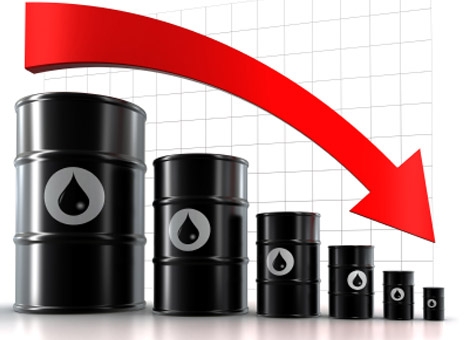Saudi Arabia's oil revenues are expected to drop this year. Brent price is likely to reach $100/barrel in 2012 and $98/barrel in 2013 from $118/b in April this year. However, for Saudi Arabia, the consequences of lower oil prices are likely to be slight, according to a report by Samba.
Samba projected the Kingdom's oil earnings at $324 billion, a 16 percent decline. Earnings are comfortably above the five-year average of $225 billion.
Moreover, despite this year's reduced earnings, a current account surplus of $148 billion, or 25 percent of GDP is in prospect. For 2013, Samba expects a surplus of some 18 percent of GDP. By the end of 2013 total net foreign assets are expected to total $827 billion, equivalent to 135 percent of GDP.
The report said, government's fiscal position also remains robust. Whereas previously Samba expected a surplus of 20 percent of GDP, but now this will come in at 13 percent of GDP.
Saudi Arabia is aiming to use this period of high oil prices to lessen dependence on oil itself. The report said value of nonoil exports have grown by an annual average of 17 percent over the past decade, increasing their share of total exports from 14 percent to 17 percent. Most of these are derived from hydrocarbons (petrochemicals, refined products, steel), but they are sufficiently far up the value chain to soften the direct dependence on oil prices.
Nevertheless, the health of the domestic economy is still intimately linked to oil earnings. Hydrocarbons accounts directly for 28 percent of real GDP, and its indirect impact through government spending is considerably greater.
The need to intensify diversification efforts is becoming more pressing as domestic demand for oil continues to rise at a breakneck pace. Part of the reason for the increase in Saudi crude output is to meet domestic demand during the summer months, when increased demand for air-conditioning requires that additional crude be diverted to feed domestic power stations. It is hoped that additional gas from the offshore Karan field will help to meet this demand, while alternative energy such as power and nuclear have moved up the authorities' agenda, the report said.
Meanwhile, PMI data continue to point to an economy that is bucking the global slowdown. The overall HSBC/Markit PMI recorded 59.7 in June, a slight decline on the previous month, but still comfortably in expansion mode.
The "new orders" sub-index drove much of this improvement with a reading above 69. Fears that weakening demand for oil and petrochemicals in Asia might have a pronounced impact on Saudi firms appear not to have been realized, with the "new export orders" category rising from its March 2012 low. Yet readings from this index are still well below the highs achieved in the summer of last year and it seems that much of the demand for new orders is coming from domestic clients, the Samba report added.
Profit margins still appear tight for most firms, with growth in input prices still comfortably outstripping output prices. Yet there is relief in the form of a weaker euro. The euro zone currency has shed almost six percent against the US dollar since early April, which has helped put downward pressure on firms' input prices. Part of the euro's weakness reflects dollar strength, which will in turn help to soften a broad range of commodity prices. These dynamics should feed through into the PMI data in the months to come.
The Samba report said Saudi Arabia overtook the UAE as the Gulf's primary source of sukuk issuance in the first quarter of this year, placing $6.55 billion, or 77 percent of the regional total. The relative decline in the UAE is hardly a surprise given the slump in Dubai's property market and lingering investor unease stemming from Dubai World's November 2009 debt standstill, but the pickup in Saudi issuance is striking.
The year began with the largest ever single-tranche sukuk, an SR15 billion ($4 billion) 10-year issue by the General Authority of Civil Aviation (GACA) to fund its Jeddah airport development. Other issuers included the Saudi Electricity Company (SEC), dairy company Almarai, Saudi British Bank (SABB), and Banque Saudi Fransi (BSF).
Other likely issuers over the next two years include Saudi Basic Industries Corp. (SABIC), Olayan, Saudi Bin Laden and the Saudi Aramco/Dow Chemicals joint venture, Sadara. GACA has also announced its intention to issue two further sukuk.
Arab News
10 July

























































